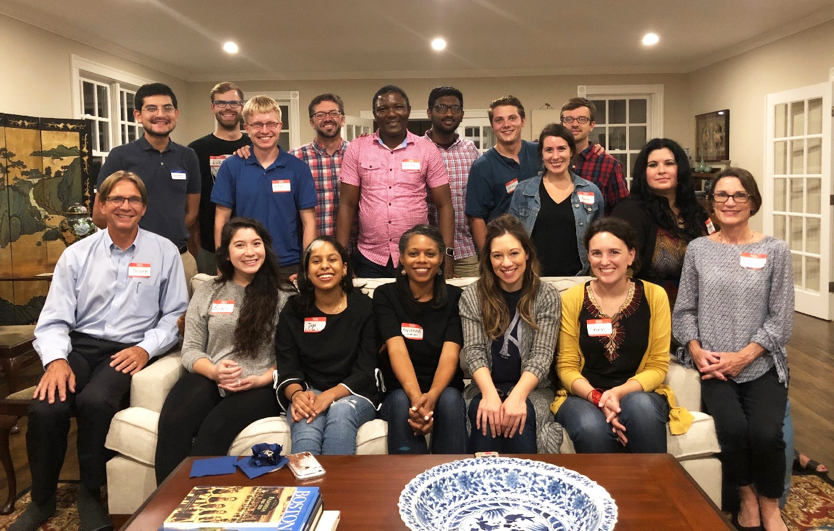GCTS Vision: Community
DR. SCOTT W. SUNQUIST
President & Professor of Missiology
[This is part 4 of a 7 part series on the community vision for Gordon-Conwell Theological Seminary. To become a thoughtful, loving, Christ-centered community of global discipleship.]
Is it possible to develop community when teaching an online course?
Eight years ago I met a learning cohort who had been studying together online for a year. They finally met in person for a one-week intensive course. Not a believer in online “community” at the time, I asked a young woman, “Do you really get to know each other with your online classes?”
“What?” she exclaimed. “We call ourselves ‘The Network.’ We are friends for life.”
So yes, it is possible; it’s also possible to miss real community even while taking a course with 15 people in the same room. And Christian learning must be done in community — whether online or in-person — or it is less than fully Christian. When we are called to Christ we are, in that same call, called to His Body, the Church. There is no lone Christian and no lone Christian scholarship.
Furthermore, our commitment to developing community in our theological education requires the development of Christian virtues and attitudes such as holiness, patience, gentleness, attentiveness and (ironically) solitude.
Holiness makes community possible. Really.
Holiness means exhibiting the virtues we see in Christ and that are listed and described by Paul. Patience is a good place to start. As we develop closer relationships in community, we need to learn to be patient with one another. Gentleness is also a good one. Many of the early church writers identified gentleness as the key, or one of the key virtues. With gentleness, they say, Jesus conquered evil. We can conquer division and anger with patience and gentleness. We can grow as a community as we are gentle with each other.
I would like to express this communal element of Gordon-Conwell’s aspiration a little more forcefully: I believe that such community formation, or formation of individuals in community, is a central element of our curriculum. Our new learning outcomes for most of our masters’ degrees include being “spiritually grounded.” Spiritually grounded takes on flesh in genuine human relationships in community. Spiritual growth is shaped by, and revealed in, our community relationships.
Gordon-Conwell graduates should be people who are attentive to others, kinder than most, forgiving and gracious in all their relationships. Some of this will be learned in studying the Bible, history, theology and counseling. However, much of it will be learned as we grow together in community; learning to listen, care, and “bear one another’s burdens.”
Some may ask, “How can a community be formed in online classes?”
First, we make assignments that require some interaction among students. We also make assignments that require each student to apply what they are learning to their local church and/or ministry. After all, community growth can mean growing in your existing church community (In fact, it should mean this).
What about time alone; solitude?
Healthy Christian communities encourage healthy rhythms of life. This includes times of solitude. The community will be more wholesome and more deeply rooted in Christ if individuals are supported in their own deepening relationship with Jesus. This requires periods of solitude and silence.
Community. It is possible to learn raw facts without it. But it is not possible to prepare for ministry with others unless we learn in community.
But, what type of community? Next week answers part of this question.
SWS
 Scott W. Sunquist, the new President of Gordon-Conwell Theological Seminary, writes a weekly blog, “Attentiveness” which is posted each Monday morning on the Gordon-Conwell web site. He welcomes comments, responses and good ideas.
Scott W. Sunquist, the new President of Gordon-Conwell Theological Seminary, writes a weekly blog, “Attentiveness” which is posted each Monday morning on the Gordon-Conwell web site. He welcomes comments, responses and good ideas.
